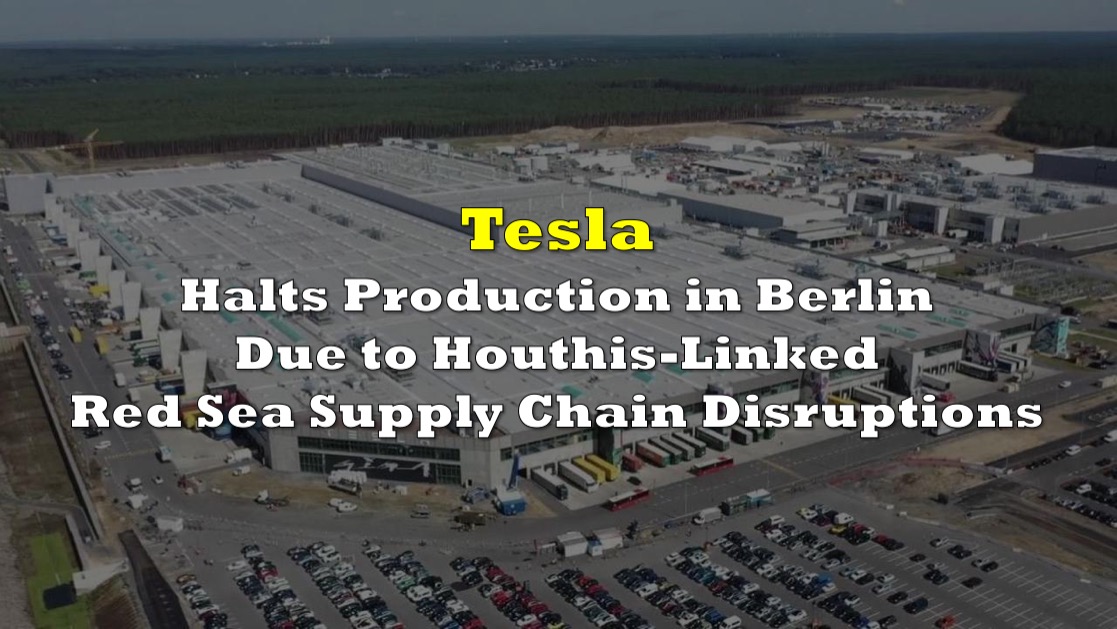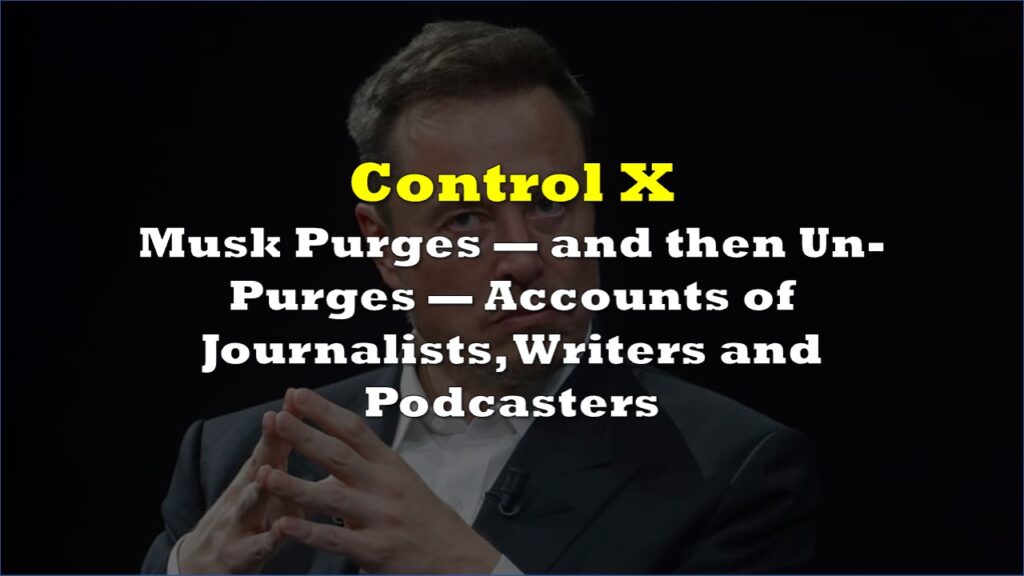Following the Houthis’ persistent attacks, the US and UK governments are mulling to strike back.
Tesla has announced a temporary suspension of most car production at its factory near Berlin from January 29 to February 11. The company cited a shortage of components resulting from shifts in transport routes caused by attacks on vessels in the Red Sea. Tesla is the first major company to publicly acknowledge production interruptions due to the ongoing crisis in the region.
📣 JUST IN: $TSLA Tesla Berlin Halts Production Due to Red Sea Supply Chain Disruptions – Reuters $NIO $XPEV $PSNY $LCID
— Hardik Shah (@AIStockSavvy) January 11, 2024
Key Details:
📍 Tesla to pause most car production at its Berlin factory from Jan. 29 to Feb. 11 due to component shortages.
📍 The suspension is attributed… pic.twitter.com/YreV4Yh9Re
The Red Sea conflict, fueled by Iranian-backed Houthi militants attacking vessels in solidarity with the Palestinian group Hamas, has now reverberated across Europe. The disruption has impacted Tesla’s Gruenheide production facility, highlighting the vulnerability of global supply chains.
“The armed conflicts in the Red Sea and the associated shifts in transport routes between Europe and Asia via the Cape of Good Hope are also having an impact on production in Gruenheide. The considerably longer transportation times are creating a gap in supply chains,” Tesla stated in a press release.
This development raises concerns among analysts, with some speculating that other automakers relying on Asian components might face similar challenges. Sam Fiorani, Vice President at AutoForecast Solutions, commented, “Relying on so many key components from Asia, and specifically China, has been a potential weak spot in any automaker’s supply chain. Tesla relies heavily on China for battery components, which need to be transported to Europe through the Red Sea, putting production constantly at risk.”
The production halt comes at a challenging time for Tesla, as the company is already grappling with a labor dispute with the Swedish trade union IF Metall. Additionally, Tesla has not responded to inquiries about the impact of a strike at Hydro Extrusions, a subsidiary of Norwegian company Hydro, on its output.
Tesla has assured that production will resume in full on February 12. However, the company did not provide detailed information on the missing components or the steps it plans to take to restore production.
The disruptions in the Red Sea have forced major shipping companies like Maersk and Hapag-Lloyd to reroute vessels around the Cape of Good Hope, adding about 10 days to the journey from Asia to Northern Europe and increasing fuel costs by approximately $1 million.
US, UK mull strikes against Houthis
The impact of the Red Sea crisis extends beyond the automotive sector, affecting global maritime traffic and trade. The geopolitical tensions in the region have led to the formation of an international naval task force, Operation Prosperity Guardian, involving the US, UK, and other countries to protect commercial shipping in the Red Sea and the Gulf of Aden.
The most recent incident occurred on January 10, when Houthi rebels launched their largest attack to date, prompting the US and UK to consider military action against Houthi targets in Yemen. The Houthis have remained defiant, with senior Houthi official Abdulsalam Jahaf stating, “We will confront America, kneel it down, and burn its battleships and all its bases,” adding a vow to continue targeting vessels bound for Israel.
Following the Houthis’ persistent attacks, the US and UK governments are contemplating their response. British Prime Minister Rishi Sunak held an emergency cabinet call to assess potential actions, and reports suggest both nations are considering military strikes against Houthi targets.
UPDATE: US/UK strikes expected vs Houthis
— Joyce Karam (@Joyce_Karam) January 11, 2024
• UK emergency cabinet mtg
• Strikes could be as soon as tonight
• Hit Yemen coast
• 27 Houthi attacks in Red Sea
• Warnings, interventions failed
• Disruption in response to Gaza war https://t.co/1vWGRXfmcb
On Thursday, the US Central Command (CENTCOM) confirmed another Houthi attack in the Red Sea, marking the 27th such incident since November 19, 2023. The attack involved the firing of an anti-ship ballistic missile, with an unspecified commercial vessel witnessing the missile hitting the water. While there were no injuries or damage reported, the frequency of Houthi attacks has raised concerns about the safety of international shipping in the region.
Pentagon press secretary Pat Ryder condemned the Houthi attacks as “reckless” and “irresponsible,” emphasizing the need to counter these actions. Ryder also highlighted the multinational effort to deter Houthi attacks through Operation Prosperity Guardian, involving over 20 countries.
The White House National Security Council spokesperson, John Kirby, emphasized consultation with allies and partners about the next steps in response to Houthi aggression. The US and UK have already shown military prowess in repelling attacks, as seen in the recent interception of 18 drones, two anti-ship cruise missiles, and a ballistic missile by a UK Royal Navy destroyer and US warships and aircraft.
The economic impact of Houthi attacks extends beyond military concerns, affecting maritime traffic through the Suez Canal. Egyptian President Abdul Fatah al-Sisi discussed the situation with Prime Minister Sunak, highlighting the substantial disruption to global trade with a reported 90% decline in companies using the Suez Canal route compared to a year ago.
Information for this briefing was found via BBC, Reuters, Al Montior, and the sources mentioned. The author has no securities or affiliations related to this organization. Not a recommendation to buy or sell. Always do additional research and consult a professional before purchasing a security. The author holds no licenses.









